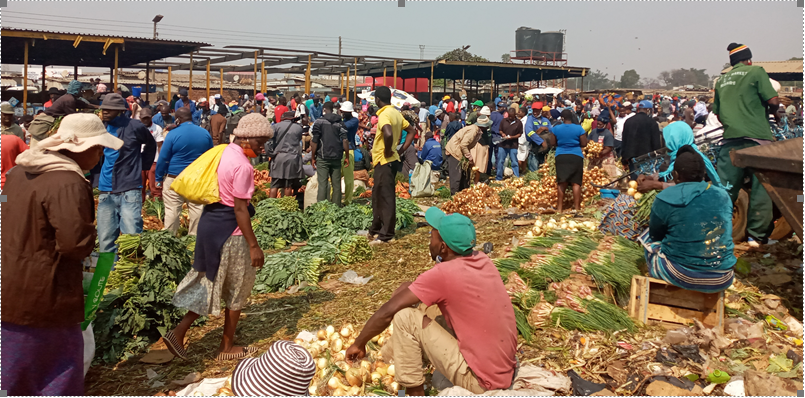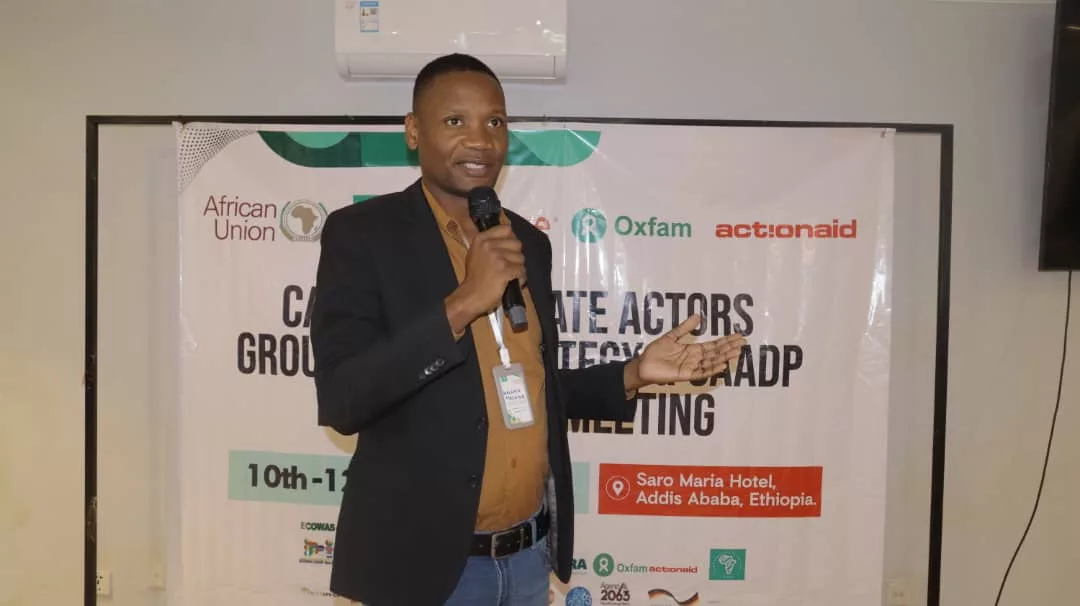|
Getting your Trinity Audio player ready...
|
Writes Charles Dhewa
Who really benefits from expos such as agricultural shows, trade fairs, food festivals, cooking competitions, and several other bandwagons? How do those who benefit do so? Without clear methods for evaluating these events, it is difficult to get correct answers to such questions. There is a strong feeling among many people that these events have just become marketing platforms for equipment manufacturers, companies that sell inputs, and other corporates at the expense of smallholder farmers and ordinary consumers.
By exhibiting the same things year in and year out, most agricultural shows are losing their relevance. New content will bring uniqueness to agricultural shows so that what makes the national agricultural show worth attending becomes very clear to many people. In addition to mobilizing diversity, agricultural shows should enable the building of synergies between actors from different agroecological regions. Hosting competition after competition often leaves out a lot of knowledge that should be shared on such big platforms. In most cases, farmers who go to agricultural shows are not organized as knowledge gathers. They are just brought to showcase their crops for winning prizes from seed companies based on how the farmers will have performed in producing seed varieties promoted by those seed companies. That confirms that the show is not a platform for gathering and sharing genuine knowledge but an opportunity for input companies to sell their products.
Ideally, agriculture shows should have a knowledge gathering and sharing face because building a holistic community self-drive is more important than getting farmers to compete. That is why community shows should enable knowledge exchange between farmers from different production zones so that they can appreciate food diversity in other communities and learn how to introduce the same in their communities. There is also a tendency to promote competitions through field days whose major weakness is focusing on showing the best farmer without showing important lessons from the worst performing farmers which could be more revealing. Instead of presenting one farmer as a superhero, it is key to show what makes one farmer outstanding in the context of 90% of farmers failing. Such an analysis is more important rather than continuing stage-managing success.
Can indigenous food be promoted through expos and cooking competitions?
Among other elements, competitions have remained a permanent feature of agriculture and food-related expos and events. One of the increasing trends is using cooking competitions to promote indigenous African food. This fashion ranges from competitions by hotel chefs to community cooking competitions where mothers compete to prepare indigenous food. While this is a good idea, more value can be generated if the promotion of indigenous food takes a supply chain route from production to consumption, with systems for retaining knowledge that can inform viable indigenous food business cases. Cooking competitions are at the far end of the value chain. Where are champions in indigenous food production, seed breeding, soil health, soil chemistry, value addition, and marketing? A product that is finally cooked at competition comes from seed systems.
People cannot prepare meals from something whose production they do not know. Emphasis should not be just on events like cooking competitions but on fluid knowledge-sharing processes and platforms. Assuming competitions are necessary, they should just be considered one small component of strategies for reviving indigenous food systems and promotion pathways. These can be built within rural communities where farmers and local supply chains have been doing their things without systems of converting raw commodities into products through intentional product development.
More important is using the market to follow trends as part of building a market base that supports indigenous food systems. That means there should be systems that especially focus on building supply chains by following trends in terms of what is happening to indigenous food systems and why. If trends are showing increased consumption by age, area, and gender, that can be revealed by the market perspective where indigenous food systems compete for sustainability.
Building community resilience by supporting and strengthening the knowledge base
Notions around competition imply that a strong knowledge base already exists. If that is correct, for maximum benefit, the competitions should be framed to ride on existing food knowledge so that the winners become community champions who can lead in sharing knowledge on entire value chains from the production of indigenous food to marketing and consumption. These champions can be master farmers in indigenous food who are at the equivalent level to master farmers in industrial food.
More important than holding competitions is setting up systems for building community resilience by supporting the production knowledge base and supply chain actors. Such systems will ensure community self-sustainability. Competitions have been part of African tradition for generations but they were not done in the ways conventional competitions are now done. For instance, Hurudza (champion farmers) competitions were about counting the number of bags to identify community champions. That was different from competitions in the conventional colonial sense which invite stigma where participants compete to be first or last and some end up demoralized to the point of feeling useless yet they have other valuable expertise.
From competitions to community knowledge-sharing platforms
To what extent is competition the best way of enabling farmers to promote their own food systems? In most cases, the competitive landscape is biased in favor of those with resources. For instance, widows may fail to compete in field days due to a lack of resources although they have unique skills in food preservation. Instead of hosting competitions within communities, it is better to build knowledge-sharing platforms where people with diverse expertise and skill sets on different value chains share their knowledge. This can add more value than competition that are often used by private seed companies as a marketing gimmick.
When properly built, knowledge-sharing platforms can be made part of the education system so that holders of indigenous knowledge become part of curricula developers to ensure indigenous food becomes part of the mainstream curricula. That way, community indigenous holders can also be certified to support the indigenous knowledge-driven curricula that are different from the current formal curricula which is fast becoming irrelevant. There is a need for systems that support the indigenous knowledge base so that it becomes part of the education system, not just limited school clubs that try to focus on traditional dance and other cultural aspects. Indigenous animals like hares and wild pigs are getting extinct but children in schools have no idea what is happening in their community because they are not integrated into local ecosystems. There should be integration between formal learning institutions like schools or universities with the surrounding communities and ecosystems like forests so that learners acquire knowledge about their local communities.
As part of extending indigenous knowledge into formal institutions like hospitals and clinics, education components can be embedded at hospitals and clinics where elders can go and teach about integrating indigenous food systems into health practice, the same way mothers often have sessions on handling Polio and other diseases. Such an approach can end up inspiring the creation of community-based enterprises that support indigenous food systems with grandmothers and grandfathers being part of the knowledge ecosystem. Instead of competitions, the events should be community-organized platforms where communities come together to share knowledge about their discoveries and what they could be losing like knowledge on cooking rupiza or nhopi, domesticating guinea fowls, and retaining seed, among many other facets. That can be more empowering than competitions. If there is to be any celebration, it can focus on how such processes are changing lives of communities as opposed to once-off competitions and seed fairs.
This kind of thrust is about building blocks around indigenous food systems instead of promoting competition. Such holistic knowledge-sharing platforms can embrace critical elements like resilience, livelihoods, the potential for income earning (business angle), and risk mitigation around climate change. Focusing on these critical facets will ensure food security for everyone including the evolution of business models connected to the market from where consumption targets the young generation most of whom find indigenous food alien. Community events should be taken just like conferences held in urban set-ups which often end up with some dialogue.
In most cases, local people look forward to dialoguing and presenting their knowledge instead of only listening to speeches by high-profile people. Rather than just providing entertainment through singing, community members should be allowed to present their successes and challenges. There should be space for communities to dialogue and analyze key issues like the amount of effort put into preparing indigenous meals as well as related issues that affect women.
Women can be good cooks but there could be serious challenges for women to come up with a final product. What technologies are needed for them to address energy issues? All these questions can be answered through a reflective process. Knowledge and expertise on food preparation is now abundant but there are still issues and limitations. For instance, why are commercial indigenous meals still more expensive than those prepared mechanically in conventional ways? If everyone agrees that indigenous food is good, why is it not found everywhere? What are the issues?
From expos and cooking competitions to global markets
So far, it does not look like expos and cooking competitions generate concrete action plans. Competitions cannot just be events that come and go in a celebratory mood. It is better to package indigenous food products for the global market because that is where indigenous food has to be competitive in order to earn real value than getting women into cooking competitions. Africans in the diaspora should be persuaded to set up restaurants that sell indigenous food in the Global North for Western consumers who want to know more about African indigenous food. Instead of investing in cooking competitions and ending there, systems that support knowledge production and processing should be established. Trade promotion agencies like ZIMTRADE should play a bigger role in taking indigenous food to the global market where real businesses can be established not just exhibitions that are difficult to convert into business deals.
Pros and cons of using tourism to promote indigenous food
While some African governments are increasingly getting excited about promoting indigenous food through tourism, it is important to examine the costs and benefits of such courses of action. Tourism has an element of exclusivity through which communities end up losing their knowledge to tourists. The absence of policies that protect theft of traditional knowledge through tourism implies some tourists can easily collect intellectual property by taking photographs of animals and natural resources like forests some of which have medicinal properties. African policymakers who are obsessed with earning foreign currency through tourism may be blind to this critical issue. When tourists collect indigenous knowledge and package it for their benefit, Africans end up paying a lot for their knowledge through buying television content such as documentaries like National Geographic. What prevents African governments from empowering communities with the necessary skills to package documentaries about their own communities and knowledge systems that can be patented and protected for their own benefit?
When will mainstream media be proactive?
It is unfortunate that mainstream media has chosen to remain generic by just waiting to be invited to events rather than discovering and documenting community-driven initiatives that are contributing to resilience. That is where social media is getting ahead of formal media. Mainstream media should play a much bigger role beyond events and following ministers. Given that formal media, personnel have expertise in documentation, they should be assisting communities to package themselves into investment opportunities. This is another critical avenue for retaining indigenous knowledge that is quickly being lost due to the absence of monitoring. The media can also package community information and knowledge to inform curricula development, policy-making, and socio-economic development.
Author’s details
[email protected] / [email protected]/
Website: www.emkambo.co.zw / www.knowledgetransafrica.com
Mobile: 0772 137 717/ 0774 430 309/ 0712 737 430






